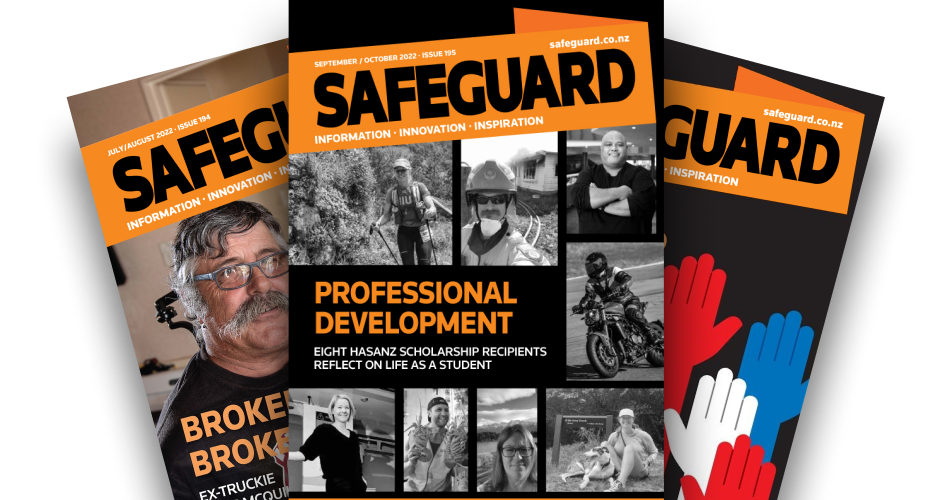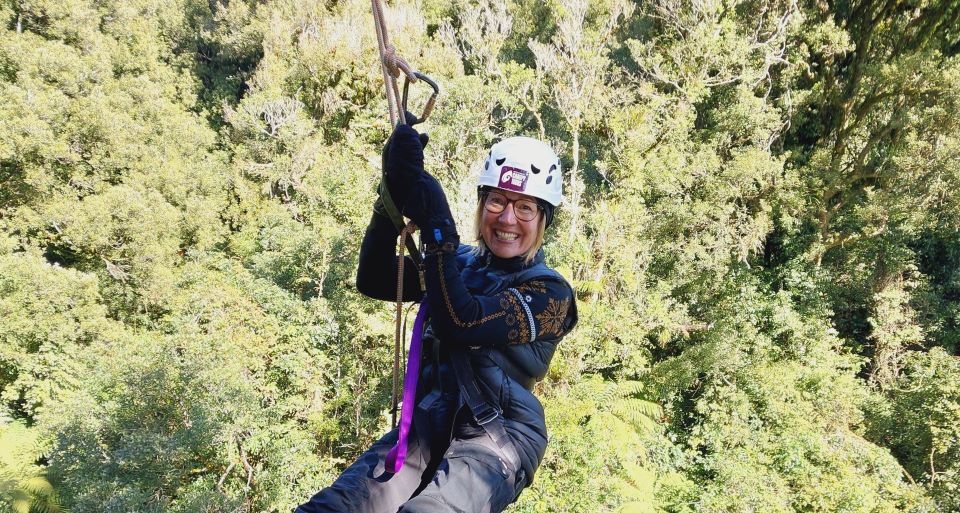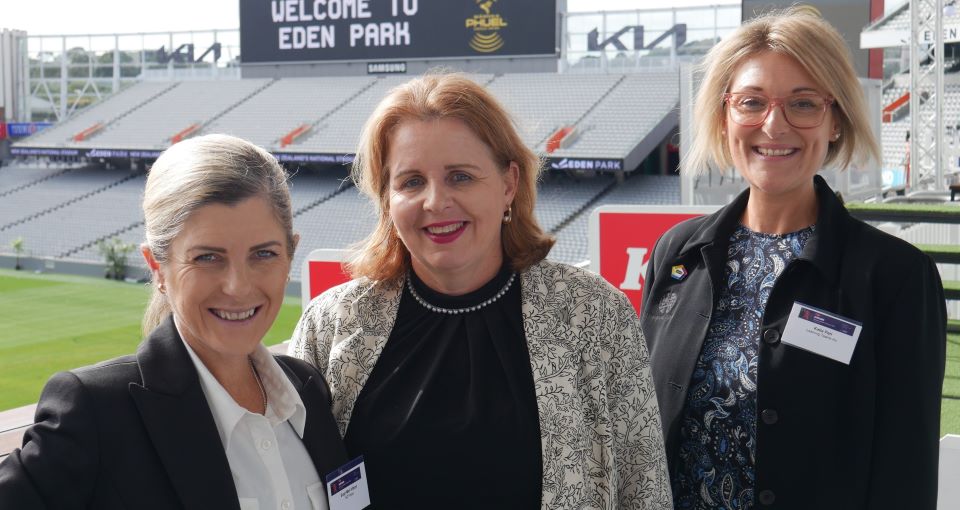In 2020 I was still working pretty much full time and leading a really busy life, including being involved with Nurses Organisation activities regionally and nationally.
We’d been doing a lot of travelling and I was feeling a bit short of breath but I thought it was just getting old. I went to the doctor for a routine prescription renewal and just casually mentioned the shortness of breath. She listened to my lungs and said they sounded crappy and sent me off to the hospital.
On the Wednesday I had my right lung drained of 3.5 litres of fluid and had a CT scan and by Friday I was given a provisional diagnosis of pleural mesothelioma. I’d worked as a nurse for 50 years, mainly in women’s health, and I knew about asbestosis and other lung conditions, but I didn’t know about mesothelioma.
Then I had a biopsy and had the devastating news confirmed a week or so later. It was a shock. The prognosis was poor – terminal. The gobsmacking thing was to learn about the latency period. I was 68 when I was diagnosed and I was told I was probably exposed to asbestos in my twenties or thirties.
My family was just as devastated. I’m one of five siblings, four girls and a boy. All the girls are nurses. It was also devastating for my nursing and medical colleagues.
Nursing history
I was only 16 when I started nursing. I only ever worked in two hospitals: Wairoa and Waikato. I was told right at the beginning to file an ACC claim, but that it would be difficult to prove it was work-related to get cover as I wasn’t in a trade. I did a lot of homework and talked to asbestos removal groups. I was told I’d be opening a can of worms and that some in the trade wouldn’t want to talk about asbestos in the workplace. I contacted the hospital in Wairoa and Hawke’s Bay DHB (as it was then) but they didn’t have any work plans from that long ago.
I remember we used to take deceased people down to the mortuary. It was a long tunnel with lagging on the pipes. When you’re 16 years old and there’s a couple of you going along the tunnel with a body you’re knocking into things and touching the pipes because they’re warm. It’s likely I was exposed when asbestos was disturbed during renovation work.
It became quite testing trying to navigate that part of ACC. I thought all cases of mesothelioma were automatically covered as work-related. As a nurse you wouldn’t necessarily expect to have been exposed to asbestos fibres. However, one of my sisters – also a nurse – was diagnosed with mesothelioma about a year after me. She had another exposure risk factor, so whether hers was secondary exposure we don’t know, but she worked at Wairoa hospital over much the same years as I did, and it was known to be riddled with asbestos. I caught up with her a week or so ago. She lives in Napier. We’ve both had the same chemotherapy treatment. She’s doing OK too.
And I know of another nurse – in the South Island – who has it.
I was even asked by one of the ACC assessors whether I wore overalls in my nursing role, if tradesmen were doing work. It was a little bit demeaning, I guess. However, since they accepted my claim ACC have been fantastic. They’ve also accepted my sister’s claim. We had Beatrix Woodhouse, a lawyer, batting for us.
Alerting others
A guy who read an article I’d written went on to apply under the OIA for information about asbestos in past and present buildings at Wairoa hospital. It was confirmed that asbestos was present in a lot of the buildings we had been working in and that some tradies known to have had contact with asbestos were being monitored.
I wanted them to put out an alert to other people who worked there – nurses, domestic staff – to be mindful and if they had symptoms to get checked out. It went back and forth but the DHB thought it would cause unnecessary alarm.
I’ll still get my story out there. Trying to break down those entrenched attitudes that nurses aren’t tradies and so couldn’t get mesothelioma. We’re talking exposures 40 bloody years ago – the people now at the DHB wouldn’t know the history of it. It’s quite frustrating. ACC can’t say definitively that the exposure was at Wairoa hospital but they’ve accepted it as work-related. I think it’s a moral obligation to alert people who may have been exposed, but I guess it’s a balance between raising awareness and creating hysteria.
Chemotherapy and after
I had six cycles of chemotherapy in the second half of 2020. I felt like absolute crap. I was still working and managed to complete three cycles before things started going downhill. I thought, shit, the chemo’s going to kill me before the cancer! I felt terrible and had blood transfusions and a few visits to the hospital.
I finished chemo on Christmas Eve 2020. That was a good Christmas present. It took another three months for me to start coming right. We’ve got a daughter in Australia and one of my sisters lives there too and they were both coming over to visit, so it was the right time to retire to spend some quality time with them.
I’ve continued to remain well, touch wood. Amazing, because when I got my diagnosis they said I might live 12 months with chemo and six months if I didn’t have it.
I’ve got a really good circle of friends and family and I’m spending lots of time with them.
We went to Australia in April and we’re going again in November, to the Gold Coast to see our daughter, son-in-law and our two grandchildren over there. We have three daughters and seven grandchildren.
Keytruda promise
I always thought that when I retired from work I’d become a patient advocate, but I ended up being my own advocate in the fight of my life. The cancer will return. It’s going to cause my demise. ACC has agreed in advance to fund Keytruda as a last resort if further chemotherapy doesn’t work or I can’t tolerate it. I wanted to make this plan while I’m feeling well. I didn’t want to be doing it when I was feeling crap having chemo again.
Having Keytruda available if I need it is really good. It’s unaffordable for most people. It’s not recognised for use in New Zealand as a treatment for mesothelioma, but if you don’t try drugs, how will you know if they’re going to work?
Helping others
I haven’t been idle since retirement. I’ve been busy helping to set up the Mesothelioma Support & Asbestos Awareness Trust, because there was no support group for people with mesothelioma. There are six trustees, including Beatrix as our legal support, an oncologist, researchers and asbestos consultants. It’s online at MSAATrust.org.nz.
We’re trying to raise awareness about asbestos. Mesothelioma is difficult to diagnose so I suspect there’s a lot of people who go undiagnosed or who are misdiagnosed. I’ve talked to doctors who tell me they might see only one or two cases in their career, so it’s not surprising it’s sometimes missed.
My message to young tradies – particularly in demolition – is to ask questions and check out policies, but when you’re 16 or 17 you’re probably not going to be comfortable doing that. But sometimes you have to have those difficult conversations. Employers have to be honest and have a health and safety mechanism that works.




